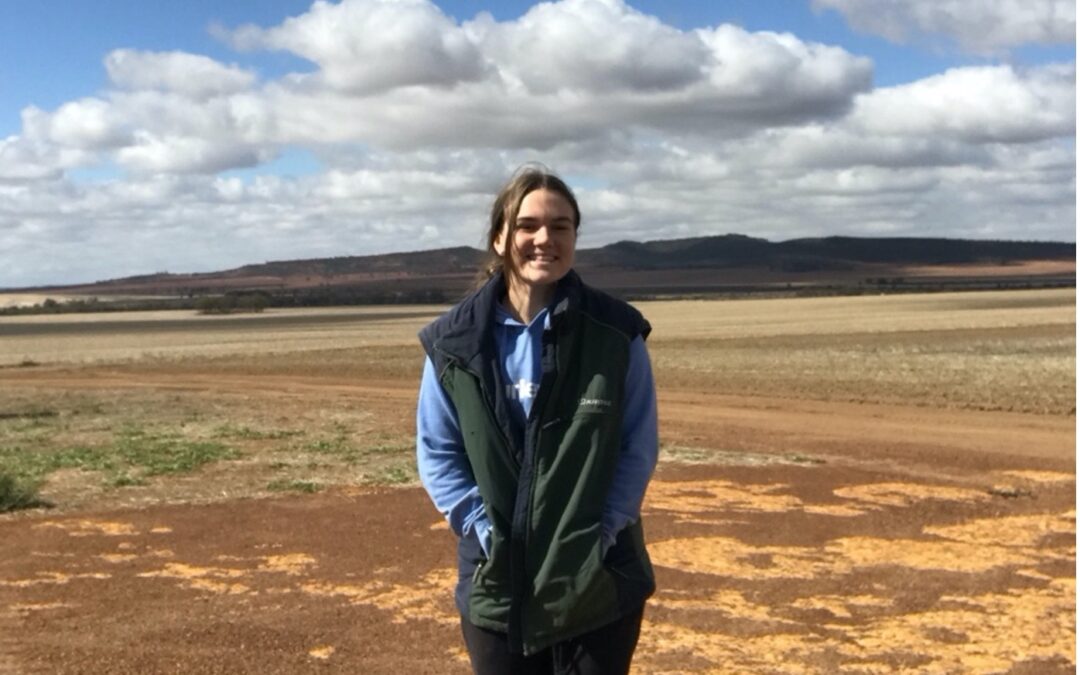Written by Dhanya Shri Vimalan
Isabella is a student member of the RRR Network; she is currently in her fourth year completing her master’s in physiotherapy at Curtin University. Amidst the COVID-19 pandemic, Isabella has started her own Pilates business and is committed to helping others become better versions of themselves. She shares with us her experiences studying away from home and the benefits of being a rural woman.
Tell us a bit about yourself.
I was born in Wongan Hills, and I grew up on a family-owned farm. I went to boarding school in Perth during my high school years. I originally wanted to get into physiotherapy straight out of school, but I didn’t get the required marks. I knew that Curtin University did a master’s degree, so I did an undergraduate degree to get into that pathway.
How was it like moving away from home to study at Curtin University?
It’s been hard being away from home. It has adaptable in the sense that I have been living alone since I was 12 years-old with boarding school, but at the same time, because I have so much freedom, I have so many decisions to make on my own. In boarding school, it was set times and set people I see every day, whereas, with university, it’s about networking and meeting new people and picking who you want to hang out with.
I found the first year of university very hard, going from attending a school where you knew everyone, living with 20 other girls, to not knowing anyone and living by yourself. I have my group now, which is great. You find your people eventually. I keep in contact with the girls I went to school with, but everyone has their own lives, so the first year was challenging.
Tell us a bit about the Yield Movement.
During lockdown last year, I did a Pilates course because I was unable to go on placement. We had allocated units to fill towards placement, and we couldn’t do them. I knew I had to do something with my free time, so I did the Pilates course. At the start of this year, I started my own business called the Yield Movement, and now with my qualifications, I do Pilates instructing and focus on exercise science. The balance between studying and work is not too bad, I can work my own hours, and I facilitate programs for users to do on their own time.
Would you change any part of your experience?
Definitely not. If I hadn’t made the decisions I have made in the past, I would not be where I am now. I’m lucky that my parents also support me in the ways they do, financially and emotionally.
What do you wish to achieve through your work in physiotherapy?
That’s a loaded question. Being another practitioner in rural WA would be a good start. I am servicing where I now live, Bruce Rock, which hasn’t had a stable physiotherapist for the past seven to ten years. It’s quite a big catchment pool, so providing patients with some form of stability would be a great path to head down.
What advice would you give to the next generation of rural, regional, and remote women who want to get into the same field of work?
Network. Emphasise the fact that you are from country WA because it does get you places. When I was applying for my master’s, I put down that I was living rurally, and if the university did not give me a place, they would be depriving 10,000 people of a physiotherapist. There is a clear need for this demographic in rural regions, and reinforcing that you are from that region is extremely important.
We all get into healthcare to help people, and if someone is reading your application and going ‘this person really wants to help this population of people’, it’s more likely you would be picked for the industry.
Learn more about Isabelle here
.

